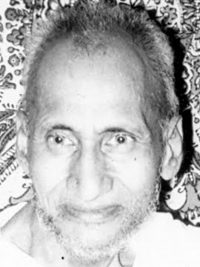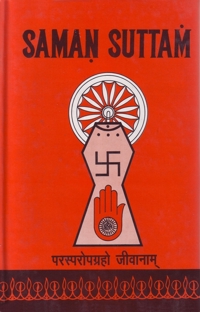22. Dvividha Dharma Sutra
PRECEPTS ON THE TWO PATHS OF RELITGION
De ceva jinavarehim jaijaramaranavippamukkehim.
Logammi paha bhaniya, sussamana susavago va vi. (296)Lord Jina, who has conquered birth, old age and death, has spoken of two pathway: one for the virtuous householders and other for the virtuous monks. (296)
Danam puya mukkham, savayadhamme na savaya tena vina.
Jhanajjhayanam mukkham, jaidhamme tam vina taha so vi. (297)Charity and worship are the primary doties in religion of a house-holder; without them, one cannot be sravaka (house-holder). Meditation and study of scriptures are the primary duties of a virtuous monk; there can be no monk without them. (297)
Santi egehim bhikkhuhim, garattha samjamuttara.
Garatthehim ya savvehim, sahavo samjamuttara. (298)In some case house-holders are superior to certain monks in respect of conduct. But as a whole monks are superior in conduct to the house-holder. (298)
No khalu aham taha, samcaemi munde java pavvaittae.
Aham nam devanuppiyanam, amtie pamcanuvvaiyam sattasikkhavaiya.
duvalasaviham gihidhammam padivajjissami. (299)So long as I am not able to take leave of home and become a monk with a shaven head, I accept, in the presence of monks, beloved of gods, to observe the twelve kinds of vows of a house-holder, viz. five small vows (anuvratas), and seven disciplinary (sikshavratas) vows as prescribed for a layman. (299)
Pamca ya anuvvayaim, satta u sikkha u desajaidhammo.
Savvena va desena va, tena juo hoi desajai. (300)The religion of a house-holder consists in the observance of the five small vows and the seven disciplinary vows. A house-holder who observes all or some of the vows becomes a partial monk (i.e., a pious house-holder). (300)
 Jinendra Varni
Jinendra Varni

